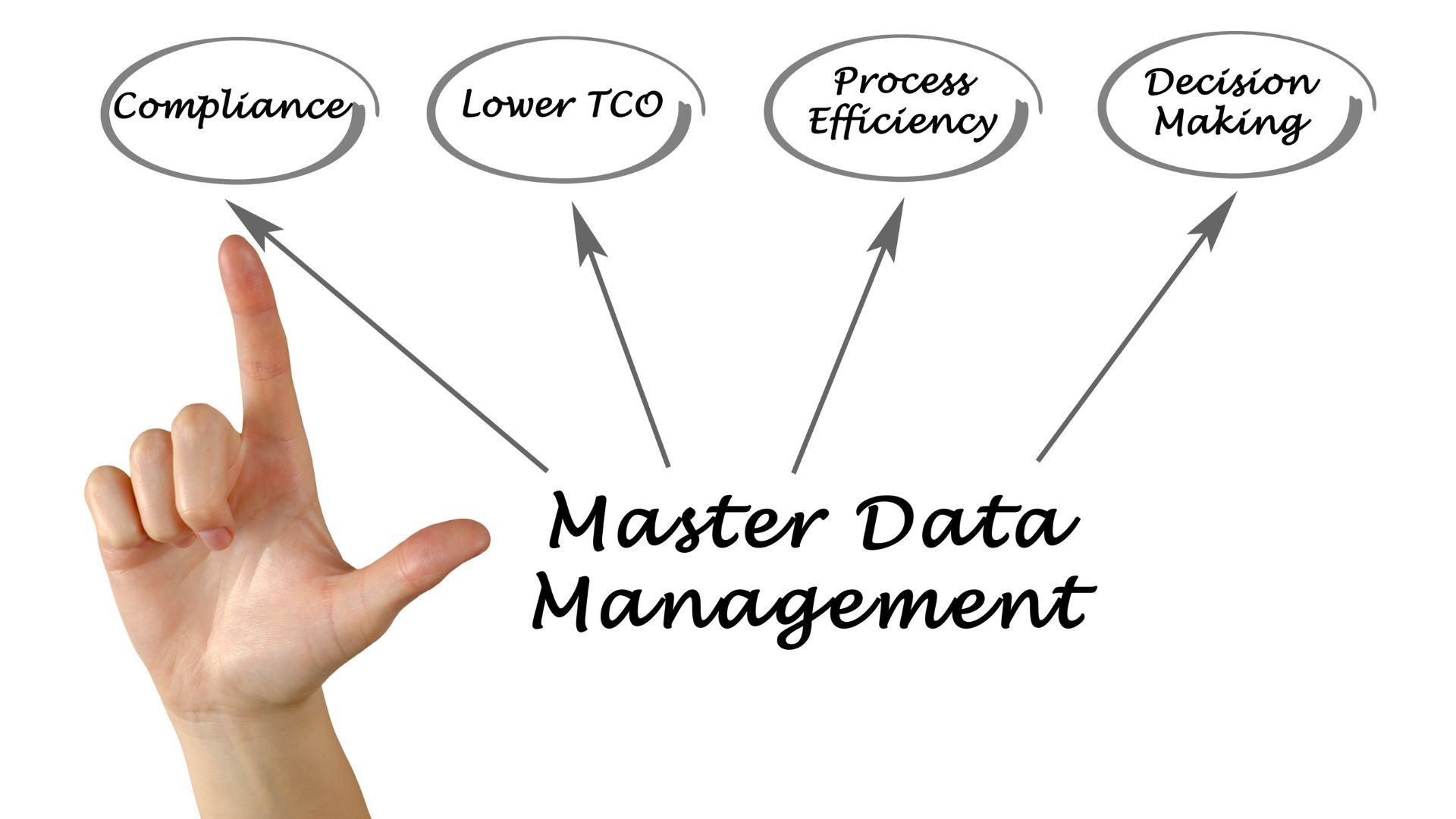Business
How To Launch A Successful Master Data Management Initiative

Adding master data management (MDM) to your business’s digital transformation journey is an excellent way to reduce duplication errors and improve data accuracy. While there are many advantages to using MDM within your company, launching a successful initiative can be intimidating. To learn more about establishing a successful MDM initiative, check out the following steps:
Establish Clear Goals
If your team isn’t sure what your data is intended to do, it will be difficult for your organization to be successful. Effective master data management requires clearly-defined goals and objectives that articulate how MDM will help your organization reach its desired end state. Take time to consider your team’s data goals and establish specific objectives.
Your company’s goals should be well-defined and created in collaboration with stakeholders. This collaboration throughout the company will ensure everyone is on the same page and can work together to achieve a successful initiative.
Create A Data Governance Model
It’s crucial to develop an organized system for your master data management initiative, so it’s best to create a data governance model to ensure data accuracy and consistency. This model should include a detailed data strategy management plan, including roles and responsibilities.
Data governance models usually involve appointing a leader responsible for managing the initiative and ensuring that it adheres to established policies and procedures. Additionally, this model should outline how team members can access and use the data and how it will be maintained and updated over time.
Define Metrics And Measure Progress
The success of your MDM initiative should be measured quantitatively, meaning you should develop a list of metrics that define improvements in the accuracy and consistency of your data. Defining these metrics will help you track your progress and make necessary changes to ensure the initiative is successful.
It’s important to note that metrics are not only used for measuring success but can also be used to identify areas where more work is needed. By regularly assessing your data management initiative, you’ll be able to make improvements and more accurately measure progress.
Test Your Data
It’s essential to test your data to ensure that it is accurate and complete. Use automated processes such as data validation, checksums, and other testing methods to ensure your data’s accuracy before it goes live. Testing will help you avoid costly mistakes due to inaccurate or incomplete data.
Once you have successfully tested your data, it’s time to move forward and launch the initiative. Be sure to communicate any changes clearly, and ensure that the team is all on board with the new system before launching.
Monitor And Adjust
Master data management initiatives are not set in stone and should be monitored regularly to ensure that they continue to meet your organization’s needs. Monitor the metrics you established during the initial launch phase and adjusted them as needed. Keeping a close eye on data will help you stay on top of any changes or trends and allow you to adjust the initiative if it becomes ineffective.
Additionally, don’t be afraid to learn more about your data. Make changes or adjust the initiative as needed. If specific goals aren’t being met or the data is not performing as expected, consider making adjustments to help your team get back on track.
Establish Ongoing Maintenance
Finally, it’s crucial to establish a process for ongoing maintenance to ensure your data’s accuracy over time. This plan should include designing strategies that will streamline the maintenance and update of master data, such as automating specific tasks or setting up alerts when changes need to be made. By establishing a process for ongoing maintenance, you’ll be able to ensure that your data remains accurate and up-to-date.
Ongoing maintenance also requires regular audits to ensure that any changes made do not negatively impact the data. Establishing a risk management process can help you identify and address potential issues before they become too large.
Final Thoughts
By following these steps, you’ll be able to create a successful master data management initiative that will help your organization make the most of its data. A well-managed MDM initiative will ensure that your data is accurate, complete, and up-to-date – all of which are essential for making informed decisions and running a successful business.
Business
13 Reasons Investors Are Watching Phoenix Energy’s Expansion in the Williston Basin

As energy security becomes a growing priority in the United States, companies focused on domestic oil production are gaining attention from investors. One such company is Phoenix Energy, an independent oil and gas company operating in the Williston Basin, a prolific oil-producing region spanning North Dakota and Montana.
Phoenix Energy has established itself as a key player in this sector, expanding its footprint while offering structured investment opportunities to accredited investors. Through Regulation D 506(c) corporate bonds, the company provides investment options with annual interest rates ranging from 9% to 13%.
Here are 13 reasons why Phoenix Energy is attracting investor interest in 2025:
1. U.S. energy production remains a strategic priority
The global energy landscape is evolving, with a renewed focus on domestic oil and gas production to enhance economic stability and reduce reliance on foreign energy sources. The Williston Basin, home to the Bakken and Three Forks formations, continues to play a critical role in meeting these demands. Phoenix Energy has established an operational footprint in the basin, where it is actively investing in development and production.
2. Investment opportunities with fixed annual interest rates
Phoenix Energy bonds offer accredited investors annual interest rates between 9% and 13% through Regulation D 506(c). These bonds help fund the company’s expansion in the Williston Basin, where it acquires and develops oil and gas assets.
3. Record-breaking drilling speeds in the Williston Basin
Phoenix Energy has made significant strides in drilling efficiency, ranking among the fastest drillers in the Bakken Formation as of late 2024. By reducing drilling times, the company aims to optimize operations and improve overall production performance.
4. Expansion of operational footprint
Since becoming an operator in September 2023, Phoenix Energy has grown rapidly. As of March 2025, the company has 53 wells drilled and 96 wells planned over the next 12 months.
5. Surpassing production expectations
Phoenix Energy’s oil production has steadily increased. By mid-2024, its cumulative production had exceeded 1.57 million barrels, outpacing its total output for 2023. The company projected an exit rate of nearly 20,000 barrels of oil equivalent per day by the end of March 2025.
6. High-net-worth investor offerings
For investors seeking alternative investments with higher-yield opportunities, Phoenix Energy offers the Adamantium bonds through Reg D 506(c), which provides corporate bonds with annual interest rates between 13% and 16%, with investment terms ranging from 5 to 11 years, and a minimum investment of $2 million.
7. Experienced team with industry-specific expertise
Phoenix Energy’s leadership and technical teams include professionals with decades of oil and gas experience, including backgrounds in drilling engineering, land acquisition, and reservoir analysis. This level of in-house expertise supports the company’s ability to evaluate acreage, manage operations, and execute its long-term development plans in the Williston Basin.
8. Focus on investor communication and understanding
Phoenix Energy prioritizes clear investor communication. The company hosts webinars and provides access to licensed professionals who walk investors through the business model and operations in the oil and gas sector. These efforts aim to help investors better understand how Phoenix Energy deploys capital across mineral acquisitions and operated wells.
9. Managing market risk through strategic planning
The energy sector is cyclical, and Phoenix Energy takes a structured approach to risk management. The company employs hedging strategies and asset-backed financing to help mitigate potential fluctuations in the oil market.
10. Commitment to compliance
Phoenix Energy conducts its bond offerings under the SEC’s Regulation D Rule 506(c) exemption. These offerings are made available exclusively to accredited investors and are facilitated through a registered broker-dealer to support adherence to federal securities laws. Investors can review applicable offering filings on the SEC’s EDGAR database.
11. Recognition for business practices
As of April 2025, Phoenix Energy maintains an A+ rating with the Better Business Bureau (BBB) and is a BBB-accredited business. The company has also earned strong ratings on investor review platforms such as Trustpilot and Google Reviews, where investors often highlight clear communication and transparency.
12. A family-founded business with a long-term vision
Led by CEO Adam Ferrari, Phoenix Energy operates as a family-founded business with a focus on long-term investment strategies. The company’s leadership emphasizes responsible growth and sustainable development in the Williston Basin.
13. Positioned for long-term growth in the oil sector
With U.S. energy demand projected to remain strong, Phoenix Energy is strategically positioned for continued expansion. The company’s focus on efficient drilling, financial discipline, and structured investment offerings aligns with its goal of building a resilient and growth-oriented business.
Final thoughts
For investors looking to gain exposure to the U.S. oil and gas sector, Phoenix Energy presents an opportunity to participate in a structured alternative investment backed by the company’s operational expansion in the Williston Basin.
Accredited investors interested in learning more can attend one of Phoenix Energy’s investor webinars, which are hosted daily throughout the week. These sessions provide insights into market trends, risk management strategies, and investment opportunities.
For more information, visit the Phoenix Energy website.
Phoenix Capital Group Holdings, LLC is now Phoenix Energy One, LLC, doing business as Phoenix Energy. The testimonials on review sites may not be representative of other investors not listed on the sites. The testimonials are no guarantee of future performance or success of the Company or a return on investment. Alternative investments are speculative, illiquid, and you may lose some or all of your investment. Securities are offered by Dalmore Group member FINRA/SIPC. Dalmore Group and Phoenix Energy are not affiliated. See full disclosures.
This article contains forward-looking statements based on our current expectations, assumptions, and beliefs about future events and market conditions. These statements, identifiable by terms such as “anticipate,” “believe,” “intend,” “may,” “expect,” “plan,” “should,” and similar expressions, involve risks and uncertainties that could cause actual results to differ materially. Factors that may impact these outcomes include changes in market conditions, regulatory developments, operational performance, and other risks described in our filings with the U.S. Securities and Exchange Commission. Forward-looking statements are not guarantees of future performance, and Phoenix Energy undertakes no obligation to update them except as required by law.
-

 Tech4 years ago
Tech4 years agoEffuel Reviews (2021) – Effuel ECO OBD2 Saves Fuel, and Reduce Gas Cost? Effuel Customer Reviews
-

 Tech6 years ago
Tech6 years agoBosch Power Tools India Launches ‘Cordless Matlab Bosch’ Campaign to Demonstrate the Power of Cordless
-

 Lifestyle6 years ago
Lifestyle6 years agoCatholic Cases App brings Church’s Moral Teachings to Androids and iPhones
-

 Lifestyle4 years ago
Lifestyle4 years agoEast Side Hype x Billionaire Boys Club. Hottest New Streetwear Releases in Utah.
-

 Tech6 years ago
Tech6 years agoCloud Buyers & Investors to Profit in the Future
-

 Lifestyle5 years ago
Lifestyle5 years agoThe Midas of Cosmetic Dermatology: Dr. Simon Ourian
-

 Health6 years ago
Health6 years agoCBDistillery Review: Is it a scam?
-

 Entertainment6 years ago
Entertainment6 years agoAvengers Endgame now Available on 123Movies for Download & Streaming for Free
